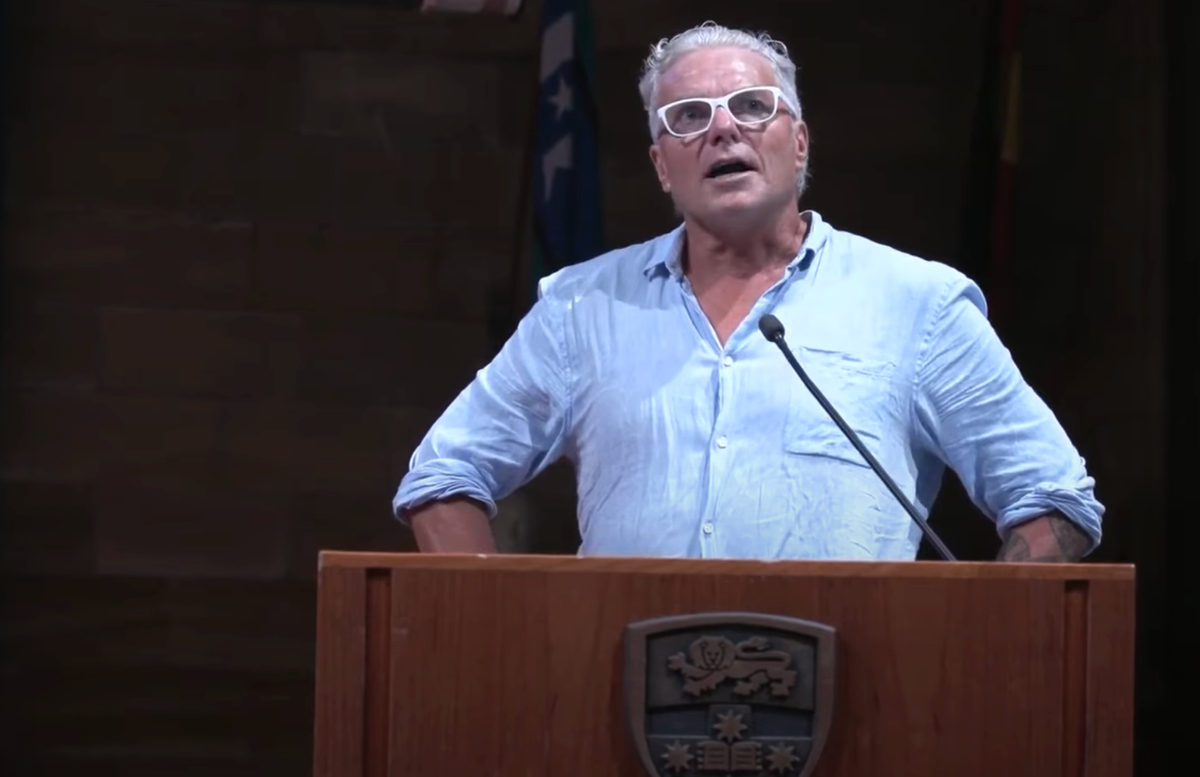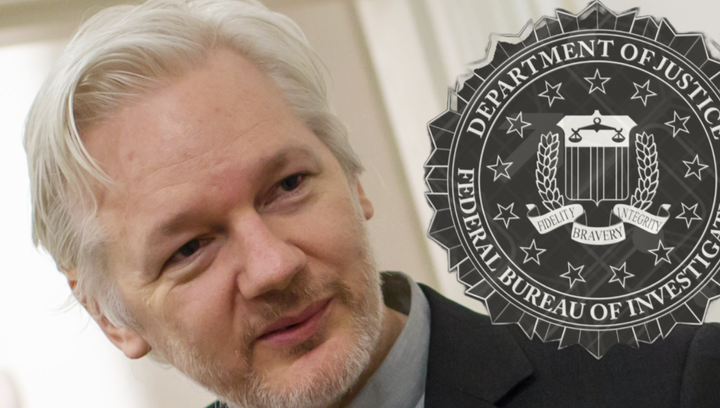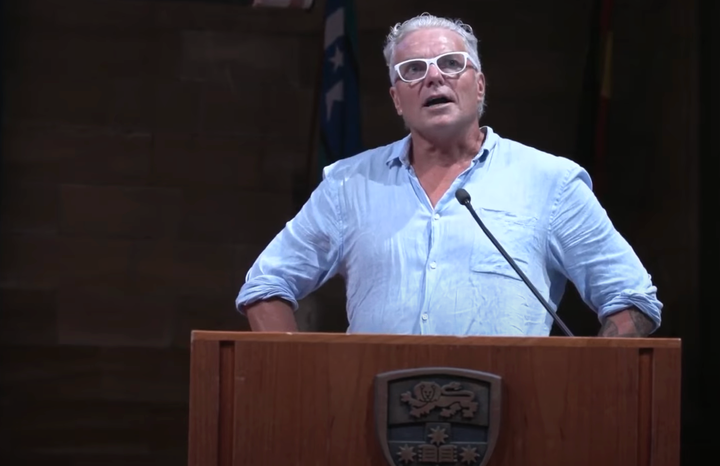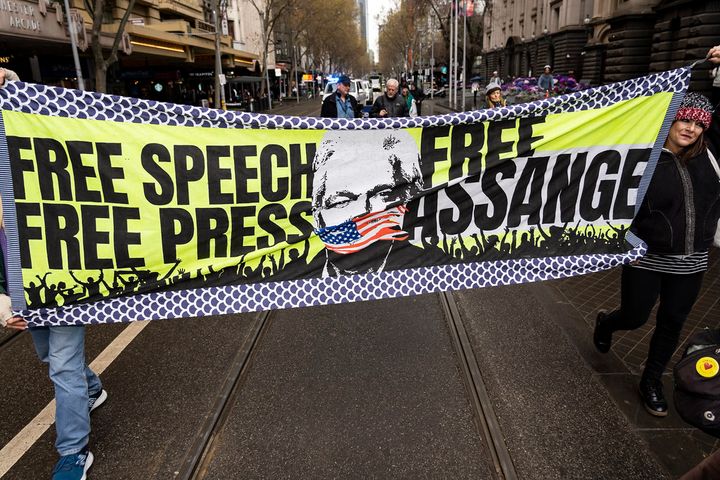Judge Jails Australia War Crimes Whistleblower In 'Shameful' Attack On Press Freedom
A supreme court judge sentenced military whistleblower David McBride to five years and eight months in prison

The following article was made possible by paid subscribers of The Dissenter. Become a subscriber with this special offer and support independent journalism on press freedom.
In Australia, a supreme court judge sentenced military whistleblower David McBride to five years and eight months in prison for disclosing classified information that exposed war crimes committed by Australian soldiers in Afghanistan.
The Media, Entertainment, and Arts Alliance (MEAA), an Australian union that represents journalists, actors, and various creative professionals, called the sentence “shameful” and contended that it showed the “need for urgent reforms to protect whistleblowers from prosecution.”
“This reporting was clearly in the public interest, but the punishment given today is far in excess of any perceived wrongdoing,” declared MEAA Media Director Michelle Rae. “The prosecution has never proven that the disclosures have had any detrimental impact on Australia’s national security or its security relationships with other countries.”
“Without whistleblowers working with journalists, corruption and wrongdoing is allowed to flourish,” Rae added.
McBride, who is now 60 years old, served in the Royal Australia Regiment and Australia Special Forces. He was deployed for two tours in Afghanistan and later submitted an internal complaint against what he witnessed in the war. That complaint led to harassment and intimidation.
From 2014 to 2016, McBride shared classified documents about Australia’s involvement in the Afghanistan War with the Australia Broadcasting Corporation (ABC). The documents, which were published as “The Afghan Files,” garnered quite a lot of attention. The Australia government responded by raiding the ABC offices and targeting McBride with an espionage prosecution.
Australia Capital Territory Supreme Court Justice David Mossop blocked McBride from presenting a defense that he had an obligation to challenge criminal misconduct and not simply follow orders.
McBride chose not to go to trial and pleaded guilty to three offenses on November 17, 2023, which stemmed from allegations that he “stole” documents. (He plans to appeal Mossop’s decision.)
According to the Sydney Morning Herald, at sentencing Mossop said during that McBride “very clearly breached his duty. Statements to the contrary do not [align with] reality," and, “It’s very important to deter others from such conduct.”
In making an example out of McBride, the judge required the military whistleblower to spend 27 months in prison before he would be eligible for parole.
“The level of harm done to the community caused by the offending is significant. [And] the offender's culpability…is high,” Mossop also stated, according to ABC.
After sentencing, McBride’s attorney Mark Davis told reporters the “only prospect of hope” that he could give McBride was to pursue an appeal against the judge for ruling that an Australian military officer has one duty and that is to “obey orders.”
“We fundamentally disagree with that, and we think it's an issue of national importance, indeed, international importance, that a western nation has such a narrow definition of duty.”
Peter Greste, a journalism professor at Macquarie University in Sydney and the executive director of the Alliance for Journalists’ Freedom, wrote, “McBride’s case forced [Australians] to confront the way our own troops had been conducting the war in Afghanistan, as well as the government's ongoing obsession with secrecy over the public interest.”
Mossop’s decision to prevent McBride from presenting a public interest defense is why Greste’s organization has advocated for a law that would require Australia's courts to weigh the “need for secrecy” against the “compelling need to publish and expose wrongdoing.”
“[Australia] Attorney-General Mark Dreyfus has committed to reforming the whistleblower protection regime, and before the last election, promised to set up an independent Whistleblower Protection Authority. Those commitments are laudable, but they ring hollow while McBride its in prison and another prominent whistleblower, Richard Boyle from the Australian Taxation Office, faces trial later this year,” Greste declared.
David McBride is a whistleblower. Today he was jailed for 5 years 8 months, with no parole for 2 years 3 months
— Jen Robinson (@suigenerisjen) May 14, 2024
He is the first person jailed in relation to war crimes in Australia- but for revealing them, not committing them
This is wrong - and a shame on 🇦🇺#FreeMcBride pic.twitter.com/leUhQkekOd
Jen Robinson, an Australian human rights lawyer well-known for representing WikiLeaks founder Julian Assange, pointed out, “He is the first person jailed in relation to war crimes in Australia, but for revealing them” and "not committing them.”
The Human Rights Law Center, which is "Australia's only legal service for whistleblowers," noted, "McBride is the first whistleblower to be imprisoned in recent memory in Australia. Witness K, who exposed Australia’s spying against Timor-Leste, was given a suspended sentence; the prosecution of his lawyer, Bernard Collaery, was rightly dropped after the Albanese Government took office."
"We have been vocal advocates against these prosecutions because we see firsthand the chilling effect of prosecuting rather than protecting whistleblowers," the law center stated.
The prosecution against McBride stands as yet another example of how key allies of the United States government follow the example of U.S. prosecutors when it comes to criminalizing whistleblowers who disclose public interest information to the press.
Denying McBride a public interest defense mirrors the barriers to fair proceedings that military or national security whistleblowers face in U.S. courtrooms, and jailing a whistleblower sends a message to the U.S. government that it will take draconian steps to safeguard information that U.S. agencies share with Australia.
The Australia government under Prime Minister Anthony Albanese may be on the right side of press freedom when it comes to demanding the U.S. government end its prosecution of Assange, who is Australian. But Albanese and the Australia government have a spotty and disappointing record when it comes to upholding the rights of whistleblowers, and they have damaged press freedom through McBride's case.
Below is an interview I conducted with Australia military whistleblower David McBride for the "Unauthorized Disclosure" podcast back in 2021.




Comments ()